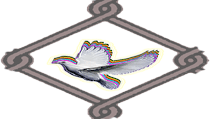Global Warming and the Tragedy of Commons by George Wolfe
 The verdict is in. For the United States, the summer of 2012 was among the hottest yet, in particular the month of July which broke the record set in 1936 during the Dust Bowl. Global warming is real, and whether it is caused by natural climate cycles or human industrialization is beside the point. Conserving resources and caring for our rare planetary home is vital if humanity wishes to avoid environmental catastrophe and the inevitable violent conflicts that will result as nations compete for increasingly scarce resources.
The verdict is in. For the United States, the summer of 2012 was among the hottest yet, in particular the month of July which broke the record set in 1936 during the Dust Bowl. Global warming is real, and whether it is caused by natural climate cycles or human industrialization is beside the point. Conserving resources and caring for our rare planetary home is vital if humanity wishes to avoid environmental catastrophe and the inevitable violent conflicts that will result as nations compete for increasingly scarce resources.
Reversing the trends toward exploitation and runaway consumption requires everyone to develop a sense of collective ownership of the environment, the atmosphere, and the resources on which we all depend. This need for a sense of collective ownership, however, seems counter to capitalist individualism and self-centered protectionism. It is a problem of the human condition illustrated by a model known as the tragedy of commons. When people share a common resource, there is a tendency to exploit that resource to the extent that it becomes unusable. Individuals tend to seek personal gain and, in the process, find themselves engaging in actions that place everyone in jeopardy.
Such exploitive behavior led to the environmental problems on Tangier Island. In the early 1960s, it was discovered that watermen on the Chesapeake Bay, who were living on Tangier Island, were overfishing the waters. Environmental scientists, affiliated with the Chesapeake Bay Foundation (CBF), began asking that limits be placed on the number of crabs and oysters harvested. Such limits would insure the seafood population would be sustained. The tendency of the watermen, however, was to pollute the bay and exploit the common resource to benefit their own livelihood—a practice which, if not restrained, would negatively impact the success of the fishery.
We now have a comparable problem with respect to the earth’s atmosphere and the emission of greenhouse gases by industrialized countries. Individuals, corporations, and nations must reduce the amount of pollutants they are releasing into the earth’s atmosphere, which is the common resource. Unfortunately, humanity’s record when it comes to exercising such restraint is not good; hence the expression “tragedy of commons.”
An important factor in avoiding the tragedy of commons appears to be the sense of ownership. People tend to preserve and care for the resource they own and have authority over. The problem with air pollution is that people do not see themselves as owning the earth’s atmosphere. Is it possible for human beings to care for the earth’s atmosphere and its resources as if it belonged to them? Can we instill in people a sense of collective ownership toward the environment and toward our planet as a living system?
The concept of shared ownership may fly in the face of economic motivations in a capitalist system. Nevertheless, a religious covenant adopted by the Chesapeake Bay watermen in 1997 resulted in a community effort that improved relations between the watermen and environmental scientists. It also helped insure that limits would be observed on the yearly harvest of crabs. What was needed was a sense of moral obligation, and on Tangier Island, a community covenant provided the moral anchor to counter the environmental exploitation predicted by the tragedy of commons.
The effects of global warming could be devastating. Our ability to apply religion and ethics as a moral anchor to counter environmental exploitation predicted by the tragedy of commons may well determine whether our civilization can continue to flourish.
George Wolfe is the Coordinator of Outreach Programs for the Ball State University Center for Peace and Conflict Studies. He is also a trained mediator and the author of The Spiritual Power of Nonviolence: Interfaith Understanding for a Future Without War.


